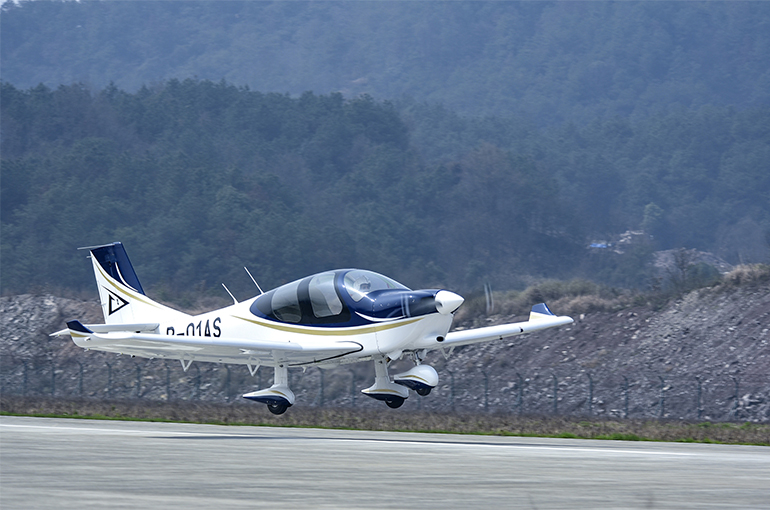 Man Behind China’s First Privately Developed Aircraft Is Sentenced for Fraud
Man Behind China’s First Privately Developed Aircraft Is Sentenced for Fraud(Yicai) Aug. 7 -- Zhu Songhua, the entrepreneur who set up the company responsible for China’s first privately developed aircraft, has been sentenced to three years and four months in prison for fraudulently obtaining CNY200,000 (USD27,840) of government funds.
A court in Leping, Jiangxi province ruled yesterday that Zhu illegally appropriated state funds, disrupted the normal market order, and undermined the fair and competitive environment for evaluating high-tech firms. He will appeal the sentence, a representative told Yicai.
Zhu studied aircraft design in France and returned after Commercial Aircraft Corporation of China was set up in Shanghai in 2008. He worked as a technical consultant for the state-owned plane maker before becoming a supplier.
He formed Shanghai Guanyi Aviation in 2016 and Jiangxi Guanyi Aviation a year later to develop the single-engine, four-seat, fixed-wing general purpose GA20, which had its maiden flight in 2018. The project subsequently encountered multiple setbacks.
Zhu was accused of fabricating a CNY85,000 (USD11,835) sales contract last year to meet the criteria for Guanyi Aviation to be recognized as a high-tech company, with the goal of obtaining a government reward of CNY200,000.
Zhu argued that he followed the relevant procedures in developing the aircraft and that the reward was used to make planes and did not go into his own pocket, causing no loss to the state. But the court rejected his defense argument.
His lawyer stated that since the establishment of Guanyi Aviation, Zhu has diverted funds from other profitable projects in Shanghai, Hong Kong, and other places to raise cooperation funds, investing a total of CNY99.9 million (USD13.9 million) in research and development, far exceeding the CNY200,000.
Guanyi Aviation was urged by the administrative committee of the high-tech zone in Nanchang, Jiangxi province to return a CNY50,000 (USD6,960) R&D support payment in June, while over a hundred patents were subject to property preservation by the court. The firm replied that the committee breached a contract by failing to provide the agreed support, resulting in delays.
Editor: Martin Kadiev